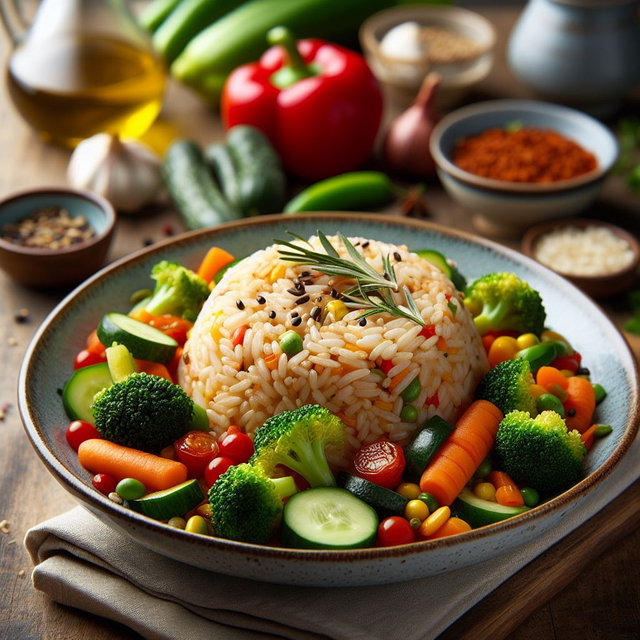Whenever I hear people talk about weight, the conversation almost always circles back to diets, exercise, and discipline. But the more I’ve explored this on The Wellness Algorithm, in the episode How to Lose Weight Without Losing Your Mind, the more I’ve realised that those are only pieces of a bigger picture.
In that conversation with yoga therapist and healer Sunaina Rekhi, what stood out most was the reminder that weight is not just about food or fitness. It’s also about stress, emotions, and — most importantly — the way we see ourselves. That perspective shifted the way I look at health. It’s no longer only about what we do, but about who we believe we are.
I used to treat the scale as the main marker of progress. But health is broader. The way we sleep, the energy we feel, and the balance in our mood matter just as much — sometimes more.
One study in PLOS Medicine even found that irregular sleep schedules were linked with higher weight gain. For me, it reinforced something I’d already begun to feel: the scale is just one measure, not the whole story.

Another theme that stood out for me was stress. It often sits quietly in the background, yet it influences everything — how we eat, how we move, and how the body decides to hold on to weight.
A 2021 paper in Frontiers in Endocrinology showed that long-term cortisol exposure was linked with weight variability and gain. It reminded me that practices that calm the nervous system — breathwork, yoga, or even a short walk — aren’t luxuries. They’re essential for balance.
Another theme that stood out for me was stress. It often sits quietly in the background, yet it influences everything — how we eat, how we move, and how the body decides to hold on to weight.
A 2021 paper in Frontiers in Endocrinology showed that long-term cortisol exposure was linked with weight variability and gain. It reminded me that practices that calm the nervous system — breathwork, yoga, or even a short walk — aren’t luxuries. They’re essential for balance.


We’ve all heard the story: someone begins their health journey full of energy, sees quick results, and then progress suddenly stops. That plateau can feel discouraging, but it isn’t failure — it’s a pause.
A study published in Nutrition & Metabolism found that during low-energy diets, some people experienced stronger “metabolic adaptation.” In simple terms, their bodies conserved energy more than expected, which slowed weight and fat loss compared to others on the same plan.
For me, that reframed plateaus. They don’t mean nothing is working; they show the body is recalibrating. And often the best response isn’t pushing harder but making gentle shifts — changing your movement, improving sleep, or giving the body time to find its balance again.

We’ve all heard the story: someone begins their health journey full of energy, sees quick results, and then progress suddenly stops. That plateau can feel discouraging, but it isn’t failure — it’s a pause.
A study published in Nutrition & Metabolism found that during low-energy diets, some people experienced stronger “metabolic adaptation.” In simple terms, their bodies conserved energy more than expected, which slowed weight and fat loss compared to others on the same plan.
For me, that reframed plateaus. They don’t mean nothing is working; they show the body is recalibrating. And often the best response isn’t pushing harder but making gentle shifts — changing your movement, improving sleep, or giving the body time to find its balance again.
Food is never just food. It carries emotion, memory, and sometimes even guilt. I’ve noticed how easy it is to label things as “good” or “bad,” which only adds pressure.
A softer way is to ask: is this choice nourishing me right now, or is it less nourishing? That framing creates space for compassion. Sometimes the most nourishing thing is a warm soup that calms the body; other times, it may be a piece of chocolate that soothes the soul. It doesn’t have to be black and white.


Food is never just food. It carries emotion, memory, and sometimes even guilt. I’ve noticed how easy it is to label things as “good” or “bad,” which only adds pressure.
A softer way is to ask: is this choice nourishing me right now, or is it less nourishing? That framing creates space for compassion. Sometimes the most nourishing thing is a warm soup that calms the body; other times, it may be a piece of chocolate that soothes the soul. It doesn’t have to be black and white.

What struck me most in my exchange with Sunaina was how much identity shapes long-term change. Diets can change behaviour for a season, but unless identity shifts, old patterns usually return.
As she put it: “When you listen to your body, it reconnects you to your future self rather than your present cravings.” That line captured it perfectly. Identity is what carries habits forward long after rules fall away.
What struck me most in my exchange with Sunaina was how much identity shapes long-term change. Diets can change behaviour for a season, but unless identity shifts, old patterns usually return.

As she put it: “When you listen to your body, it reconnects you to your future self rather than your present cravings.” That line captured it perfectly. Identity is what carries habits forward long after rules fall away.
We are often our own harshest critics, noticing every flaw in the mirror. But our bodies do extraordinary things every single day: they breathe, they digest, they carry us through life. Pausing to feel gratitude for these functions changes everything.
When I approach my body with gratitude instead of criticism, the choices I make feel different. Exercise becomes an act of care, not punishment. Food becomes nourishment, not a test. Gratitude softens the journey and makes it more sustainable.
For me, the real lesson has been this: sustainable weight management isn’t about harsher rules. It’s about awareness, compassion, and identity. It’s about recognising plateaus as natural, reframing food as nourishment, and treating the body as an ally.
The journey is not about becoming someone else. It’s about coming home to the body you already live in — with more kindness, more consistency, and more trust.

| Cookie | Duration | Description |
|---|---|---|
| cookielawinfo-checkbox-analytics | 11 months | This cookie is set by GDPR Cookie Consent plugin. The cookie is used to store the user consent for the cookies in the category "Analytics". |
| cookielawinfo-checkbox-functional | 11 months | The cookie is set by GDPR cookie consent to record the user consent for the cookies in the category "Functional". |
| cookielawinfo-checkbox-necessary | 11 months | This cookie is set by GDPR Cookie Consent plugin. The cookies is used to store the user consent for the cookies in the category "Necessary". |
| cookielawinfo-checkbox-others | 11 months | This cookie is set by GDPR Cookie Consent plugin. The cookie is used to store the user consent for the cookies in the category "Other. |
| cookielawinfo-checkbox-performance | 11 months | This cookie is set by GDPR Cookie Consent plugin. The cookie is used to store the user consent for the cookies in the category "Performance". |
| viewed_cookie_policy | 11 months | The cookie is set by the GDPR Cookie Consent plugin and is used to store whether or not user has consented to the use of cookies. It does not store any personal data. |